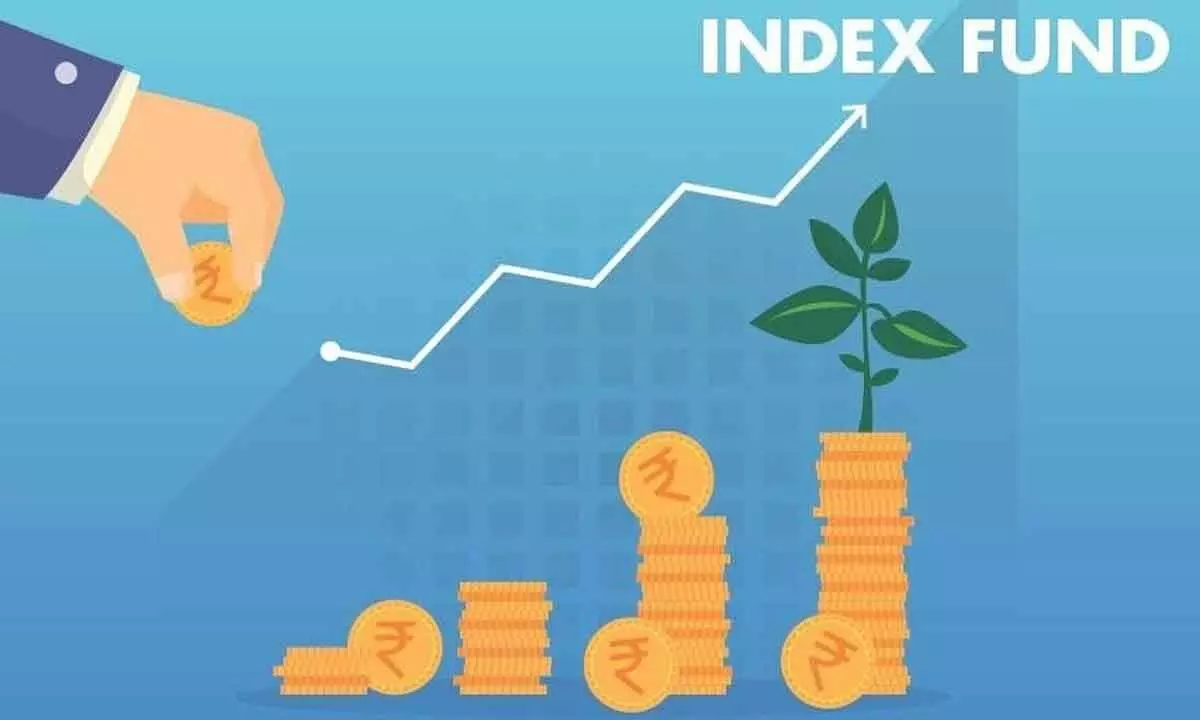Play it safe: Go for a passive fund or a well-diversified equity index fund
Index in constructed by choosing equities from similar companies that match a predetermined set of criteria
image for illustrative purpose

A fund manager or for that matter an analyst assumes something before giving weightage to stocks while creating portfolio of the funds he/she is managing. If their assumption goes correct, they outperform and the vice-versa
Nidhi Prabndhak Pe Bharosha Ho, Tabhi Sakriya Nidhi Ka Chayan Karo
Soochakaank Nidhi Ke Saath Ho Lo, Arth Vyavastha KoNaman Karo-Shivam
Translation: ‘Trust the Fund Manager, only then Invest in Active Funds.
Else salute the economy and go with the Index Funds’
Mutual funds have gained popularity over the last decade, and rightly so. They provide investors with access to a diversified portfolio without having to worry about having market knowledge because these funds are professionally managed.
Let’s define a few things before proceeding further.
What are active and passive funds?
An active fund is created around an objective, and the holdings invested are aligned to these objectives. The examples are equity or debt funds. The fund manager is actively involved in the buying and selling of assets in these funds. He endeavours to generate returns that will beat the market index.
In the case of passive funds, the aim is to generate returns similar to those of an index like Sensex, Nifty or other indices. The composition of assets in these funds is also such that they perform at a similar level, and the fund manager is not actively involved in managing these funds. Hence, the resources required to manage them are lower compared to those for active funds. Examples of these can be index funds or ETFs.
Actively managed funds bring with them the following advantages:
Professional management- Investors don’t have to worry about researching, selecting and buying investments of their own. Professional fund managers and their researchers do them on behalf of the investor.
Potential for more returns-These funds often target beating broad market indices. While there are greater risks involved, investors would have the opportunity to accrue greater returns than what may be generated through an index.
Actively managed funds bring with them some disadvantages as well.
Expensive-The expense ratios of active funds are higher, as the cost of operations are on the higher side.
Management risk-Biases and errors can influence fund managers, causing them to make poor decisions.
Passively managed funds bring with them the following advantages: Affordable-The operating costs of these funds are lower, leading to lower expense ratios. This means investors get to keep a higher amount of the fund returns, which is beneficial.
Mirroring index-Passive funds consistently mirror the performance of a market index to maximise returns.
Passively managed funds bring with them the following disadvantages -
Limited flexibility-These funds only hold the securities mentioned under a benchmark index, making it rare for investors to see returns higher than the index.
Portfolio controls -A non-active selection strategy may result in a lower degree of diversification, thus resulting in lower upside returns during upward movement and more losses during downward movement.
Considering the above, it’s difficult for a new investor to choose to invest between an active fund and a passive fund.
A valid conundrum:It is not just the common investor but the entire investment community that has been debating this question. Often, we come across articles regarding active fund having underperformed the index. In the developed economy, this is the biggest challenge before the fund managers of active funds to beat the passive ones. The referred Nivesh-Sutra tries to address this dilemma to some extent.
A passive fund represents or tracks the underlying index. The index in constructed by choosing equities from similar companies that match a predetermined set of criteria. There is periodic reshuffling of index portfolio. Inclusion and exclusion are part and parcel of an Index based upon predetermined set of criteria. The return of the index or that of passive funds is based on overall valuation, growth and earning expectation of the underlying stocks in addition to other macro-economic factors.
Active fund managers try to outperform the passive fund by selecting the better of the lots. A fund manager or for that matter an analyst assumes something before giving weightage to stocks while creating portfolio of the funds he/she is managing. If their assumption goes correct, they outperform and the vice-versa.
So, in an active fund, outperformance is a probability, but the cost is a certainty,
Therefore, it is advisable to go for passive fund unless you have faith in the fund house and the fund manager.
In case of any confusion, go for a well-diversified equity index funds and be the part of the economy’s growth story.
(The writer is Executive Vice-president, SBI Funds Management Ltd; Translation and text by GauravDharmarha, senior Vice-president and Zonal Head, SBI Funds Management Limited)

